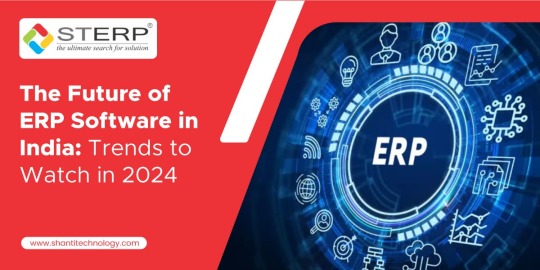#Digital Transformation of SMEs
Text
Best Practices for business process modernization in the UAE
Business process management (BPM) is an incredible opportunity for organizations to streamline and optimize their operations. By implementing best practices, you can unlock the full potential of BPM and achieve remarkable results.
Business process modernization in the MiddleEast :: Don’t Miss the opportunityBest Practices for business process modernization :Organizational resistance to changeComplexity of legacy systemsData management and securityPace of technological advancementsCultural transformation
Business process modernization in the MiddleEast :: Don’t Miss the opportunity
Business Process Modernization
Business…

View On WordPress
#adapting to technological changes#business process modernization#business transformation opportunities#Digital Transformation#digital transformation for small businesses#Digital Transformation of SMEs
0 notes
Text

#hot rod#rodimus#portagas d. ace#fire fist ace#transformers#mtmte#one piece#op#fanart#digital drawing#they are the sme guy trust
103 notes
·
View notes
Text
Unlocking Innovation: SMEs Survey on Digital Transformation
Are you a business owner or professional just beginning your digital transformation journey or already on your way?
https://api.leadconnectorhq.com/widget/form/YDFRUKPZtM7ReGa4u10O
0 notes
Text
Unlocking Success: Navigating Digital Transformation for SMEs with Rapidor
Discover how Rapidor's tailored solutions pave the way for SMEs to thrive in the digital era. Our blog explores key insights and strategies for a seamless digital transformation journey, empowering small and medium enterprises to stay competitive and innovative in today's dynamic business landscape. Dive into the world of digital possibilities with Rapidor – your trusted partner in SME digital transformation.
Bookmark the blog for your go-to guide on leveraging technology for sustainable growth
0 notes
Text
www.techjour.com
#techjour#automation#technology#business#startup#digital strategy#data#entrepreneur#ai#sme#digital business#digital storytelling#digital transformation#digital products
0 notes
Text
Southeast Asia's Digital Frontier: Navigating Opportunities and Challenges in the E-commerce Landscape

Southeast Asia is a region with a population of over 650 million people and a rapidly growing digital economy. The rise of e-commerce in Southeast Asia has brought about opportunities for businesses to tap into this large consumer base, but it also presents unique challenges that must be addressed.
Opportunities
The e-commerce market in Southeast Asia is projected to reach $172 billion by 2025, according to a report by Google, Temasek, and Bain & Company. This growth is fueled by factors such as rising internet penetration, increasing mobile phone usage, and a young, tech-savvy population.
One of the key advantages of e-commerce in Southeast Asia is the ability to reach a large and diverse consumer base. With over 650 million people spread across 11 countries, there is ample opportunity to target specific markets and niche segments. Moreover, e-commerce platforms such as Lazada, Shopee, and Tokopedia offer a low barrier to entry for small businesses, enabling them to reach a wider audience and compete with larger players.
Challenges
Despite the potential for growth, e-commerce in Southeast Asia is not without its challenges. One of the biggest obstacles is the lack of infrastructure and logistics support in some regions. Delivery times can be slow and unreliable, and the cost of shipping can be prohibitively high, particularly for smaller businesses.
Another challenge is the high rate of cash on delivery (COD) transactions, which can account for up to 70% of all e-commerce transactions in Southeast Asia. COD presents a risk for businesses, as there is a higher likelihood of fraud and non-payment, as well as higher transaction costs.
Additionally, e-commerce in Southeast Asia is highly fragmented, with different regulations and consumer preferences across the region. This can make it difficult for businesses to navigate the market and establish a consistent presence.
#ecommerce#e commerce#online marketing trends#online marketing#online business#online payment#online transaction#digital marketing transformation#digital marketing agancy#digital marketing trends#digital marketing#digital marketing services#digital finance#business transformation#digital business#business in asia#sme#smes#small and medium business
0 notes
Text

Transforming Finance: How Fintech is Changing the Digital Game in India
India – 3rd biggest Fintech Ecosystem in the World
India is set to be a global Fintech hub, projecting a $1.5 trillion market by 2025.
The country accounts for 40% of global digital payments.
In 6 years (2016-2022), fintech funding deals have grown by almost 82%.
Fintech start-ups have doubled in the last five years to reach 9000 as of 2023.
Government of India estimates the digital economy to contribute to more than 20% by 2026 (from the current 10%), and fintech is playing a significant role here.
Traditional banks are also playing a crucial role in fintech ecosystem growth in India.
Fintech companies provide “technology know-how”, and traditional banks provide “banking domain knowledge”, which helps in improving the banking ecosystem.
Neobanks built on fintech are leading the banking innovation in India and are playing a vital role in the SME sector.
SBI, India’s largest bank, has started the Fintech Innovation Incubation Program (FIIP) to nurture innovative fintech start-ups.
YONO 2.0, SBIs digital banking platform, has plans to onboard 75-100 fintech, making it India’s biggest fintech engagement program.
The push by the government for the financial inclusion of every citizen is driving banking innovation in India. At the forefront of this innovation are fintech companies that are elevating technology to create new financial products and, at the same time, enhance the overall banking experience of every individual in the country.
2 notes
·
View notes
Text
The Future of ERP Software in India: Trends to Watch in 2024
As India continues to solidify its position as a global economic powerhouse, the demand for sophisticated Enterprise Resource Planning (ERP) solutions has never been higher. ERP software companies in India are at the forefront of this transformation, driving innovation and efficiency across various industries. As we look ahead to 2024, several key trends are shaping the future of ERP software in India. This blog delves into these trends, offering insights into how ERP software providers in India are gearing up to meet the evolving needs of businesses.

1. Increased Adoption of Cloud-Based ERP Solutions
One of the most significant trends in the ERP landscape is the shift towards cloud-based solutions. ERP software companies in India are increasingly offering cloud-based ERP systems to meet the growing demand for flexibility, scalability, and cost-efficiency. Cloud ERP solutions eliminate the need for extensive on-premises infrastructure, allowing businesses to reduce capital expenditure and streamline operations.
Cloud-based ERP systems also facilitate real-time data access and collaboration, enabling businesses to make informed decisions quickly. This trend is particularly beneficial for small and medium-sized enterprises (SMEs) that require affordable and scalable ERP solutions to compete effectively in the market.
2. Integration of Artificial Intelligence and Machine Learning
Artificial Intelligence (AI) and Machine Learning (ML) are revolutionizing the ERP landscape. ERP software providers in India are integrating AI and ML technologies to enhance the capabilities of their solutions. These technologies enable predictive analytics, automate routine tasks, and provide intelligent insights, helping businesses to optimize their operations.
For instance, AI-powered ERP systems can forecast demand, manage inventory levels, and predict maintenance needs, significantly improving efficiency and reducing costs. As AI and ML technologies continue to evolve, their integration into ERP systems will become more sophisticated, offering even greater value to businesses.
3. Focus on Industry-Specific ERP Solutions
ERP software companies in India are increasingly developing industry-specific ERP solutions to cater to the unique needs of different sectors. Whether it is manufacturing, retail, healthcare, or finance, each industry has distinct requirements that generic ERP systems might not fully address. Industry-specific ERP solutions offer tailored functionalities and workflows, ensuring better alignment with business processes.
For example, a manufacturing ERP system might include features for production planning, quality control, and supply chain management, while a retail ERP system could focus on inventory management, point of sale (POS) integration, and customer relationship management (CRM). This trend towards specialization ensures that businesses can leverage ERP systems that truly support their operational needs.
4. Enhanced Mobile Accessibility
With the proliferation of smartphones and mobile devices, the need for mobile-friendly ERP solutions is growing. ERP software providers in India are developing mobile applications that allow users to access critical business information on the go. Mobile ERP solutions enable employees to perform tasks such as inventory checks, sales order processing, and expense reporting from their smartphones or tablets.
This trend not only improves accessibility but also enhances productivity by enabling employees to work remotely and make decisions in real-time. As mobile technology continues to advance, the functionality and user experience of mobile ERP applications will improve, making them an indispensable tool for modern businesses.
5. Increased Emphasis on Data Security and Compliance
As businesses become more reliant on digital technologies, data security and compliance have become paramount. ERP software providers in India are prioritizing data protection by incorporating advanced security features into their solutions. This includes encryption, multi-factor authentication, and regular security audits to safeguard sensitive business information.
Moreover, with the implementation of regulations such as the General Data Protection Regulation (GDPR) and India’s Personal Data Protection Bill, compliance is a critical concern for businesses. ERP software providers are ensuring that their systems comply with these regulations, helping businesses avoid legal penalties and build trust with their customers.
6. Rise of Hybrid ERP Solutions
While cloud-based ERP systems offer numerous advantages, some businesses prefer on-premises solutions due to specific regulatory or operational requirements. To cater to these diverse needs, ERP software companies in India are offering hybrid ERP solutions that combine the benefits of both cloud and on-premises systems.
Hybrid ERP solutions provide the flexibility of cloud-based systems while allowing businesses to maintain critical applications on-premises. This approach offers a balanced solution, enabling businesses to optimize their IT infrastructure based on their unique needs and preferences.
7. Adoption of Advanced Analytics and Business Intelligence
Data is the new currency in today’s business environment, and the ability to harness and analyze data is a key competitive advantage. ERP software providers in India are integrating advanced analytics and business intelligence (BI) tools into their systems. These tools enable businesses to gain deep insights into their operations, identify trends, and make data-driven decisions.
Advanced analytics and BI tools can analyze large volumes of data from various sources, providing comprehensive reports and dashboards. This helps businesses to monitor performance, identify inefficiencies, and uncover new opportunities for growth.
8. Greater Focus on User Experience and Interface Design
The user experience (UX) and interface design of ERP systems are critical to their adoption and effectiveness. ERP software companies in India are placing a greater emphasis on developing intuitive and user-friendly interfaces. This trend is driven by the need to ensure that ERP systems are accessible and easy to use for all employees, regardless of their technical expertise.
Modern ERP systems feature clean, responsive interfaces with customizable dashboards and navigation options. This focus on UX design helps to improve user satisfaction, reduce training time, and increase overall productivity.
9. Integration with the Internet of Things (IoT)
The Internet of Things (IoT) is transforming the way businesses operate by enabling real-time monitoring and data collection from connected devices. ERP software providers in India are integrating IoT capabilities into their systems to enhance operational efficiency and decision-making.
IoT-enabled ERP systems can monitor equipment performance, track inventory levels, and optimize supply chain operations. For example, sensors placed on manufacturing equipment can detect anomalies and trigger maintenance requests before a breakdown occurs. This integration of IoT with ERP systems allows businesses to leverage real-time data for proactive management and improved efficiency.
10. Sustainable and Green ERP Solutions
Sustainability is becoming a key consideration for businesses across industries. ERP software companies in India are developing solutions that support sustainable practices and environmental responsibility. Green ERP solutions help businesses to monitor and reduce their environmental impact by tracking energy consumption, waste management, and resource utilization.
By integrating sustainability metrics into their ERP systems, businesses can set and achieve environmental goals, comply with regulations, and enhance their corporate social responsibility (CSR) initiatives. This trend towards sustainable ERP solutions reflects the growing importance of environmental stewardship in today’s business landscape.
Conclusion
The future of ERP software in India is marked by innovation, adaptability, and a deep understanding of the unique needs of businesses. ERP software providers in India are leading the charge, offering solutions that are not only technologically advanced but also aligned with the evolving demands of the market. As we move into 2024, the trends highlighted in this blog will play a crucial role in shaping the ERP landscape, driving efficiency, and fostering growth across industries.
ERP software providers in India are well-positioned to support businesses in their digital transformation journeys, providing the tools and insights needed to thrive in a competitive environment. By staying ahead of these trends, businesses can leverage ERP solutions to achieve operational excellence and sustainable growth.
#ERP software Companies in India#ERP software providers in India#ERP software company in India#ERP software in India#ERP solution provider#ERP software#ERP system#cloud ERP#ERP solutions
4 notes
·
View notes
Text
The web design industry in India is set for significant growth, driven by technological advancements and changing user expectations. Key predictions include the dominance of mobile-first design, increased use of AI and machine learning for personalized experiences, the rise of voice user interfaces, enhanced accessibility, adoption of progressive web apps, and a focus on privacy and security. Opportunities abound in e-commerce, remote work solutions, e-learning platforms, digital transformation for SMEs, sustainable web design, and localized, multilingual websites. By embracing these trends, Indian web designers can lead the digital landscape. Click here to browse full article.
2 notes
·
View notes
Text
The impact of sustainability in fintech: reflections from the summit

In recent years, the Fintech industry has witnessed a paradigm shift towards sustainability, with an increasing emphasis on integrating environmental, social, and governance (ESG) factors into financial decision-making processes. This transformative trend took center stage at the latest Fintech Summit, where industry leaders converged to explore the intersection of sustainability and financial technology. Among the prominent voices shaping this discourse was Xettle Technologies, a trailblazer in Fintech software solutions, whose commitment to sustainability is driving innovation and reshaping the future of finance.
Against the backdrop of global challenges such as climate change, resource depletion, and social inequality, the imperative for sustainable finance has never been greater. The Fintech Summit provided a platform for thought leaders to reflect on the role of technology in advancing sustainability goals and fostering a more resilient and equitable financial ecosystem.
At the heart of the discussions was the recognition that sustainability is not just a moral imperative but also a strategic imperative for Fintech firms. By integrating ESG considerations into their operations, products, and services, Fintech companies can mitigate risks, enhance resilience, and unlock new opportunities for growth and value creation. Xettle Technologies’ representatives underscored the company’s commitment to sustainability, highlighting how it is embedded in the company’s culture, innovation agenda, and business strategy.
One of the key themes that emerged from the summit was the role of Fintech in driving sustainable investment. Through innovative solutions such as green bonds, impact investing platforms, and ESG scoring algorithms, Fintech firms are empowering investors to allocate capital towards environmentally and socially responsible projects and companies. Xettle Technologies showcased its suite of Fintech software solutions designed to facilitate sustainable investing, enabling financial institutions and investors to align their portfolios with their values and sustainability objectives.
Moreover, the summit explored the transformative potential of blockchain technology in advancing sustainability goals. By enhancing transparency, traceability, and accountability in supply chains, blockchain can help address issues such as deforestation, forced labor, and conflict minerals. Xettle Technologies’ experts elaborated on the company’s blockchain-based solutions for supply chain finance and sustainability reporting, emphasizing their role in promoting ethical sourcing, responsible production, and fair labor practices.
In addition to sustainable investing and supply chain transparency, the summit delved into the role of Fintech in promoting financial inclusion and resilience. By leveraging technology and data analytics, Fintech firms can expand access to financial services for underserved populations, empower small and medium-sized enterprises (SMEs), and build more inclusive and resilient communities. Xettle Technologies’ representatives shared insights into the company’s initiatives to support financial inclusion through digital payments, microfinance, and alternative credit scoring models.
Furthermore, the summit highlighted the importance of collaboration and partnership in advancing sustainability goals. Recognizing the interconnected nature of sustainability challenges, participants underscored the need for cross-sectoral collaboration between Fintech firms, financial institutions, governments, civil society, and academia. Xettle Technologies reiterated its commitment to collaboration, emphasizing its partnerships with industry stakeholders to drive collective action and scale impact.
Looking ahead, the future of sustainability in Fintech appears promising yet complex. As Fintech firms continue to innovate and disrupt traditional financial systems, they must prioritize sustainability as a core principle and driver of value creation. Xettle Technologies’ visionaries reiterated their commitment to sustainability, pledging to harness the power of technology to build a more sustainable, inclusive, and resilient financial ecosystem for future generations.
In conclusion, the Fintech Summit served as a catalyst for reflection and action on the role of sustainability in shaping the future of finance. From sustainable investing and supply chain transparency to financial inclusion and resilience, Fintech has the potential to drive positive change and advance sustainability goals on a global scale. Xettle Technologies’ leadership in integrating sustainability into its Fintech solutions exemplifies its dedication to driving innovation and creating shared value for society and the planet. As the industry continues to evolve, collaboration, innovation, and sustainability will be key drivers of success in building a more sustainable and resilient financial future.
2 notes
·
View notes
Text
Innovative Strategies from Business Consultants in Kerala for SME:

GrowthEmbracing the New Era of Business Evolution in Kerala
The business landscape in Kerala, a vibrant state in the southern part of India, is undergoing a significant transformation, thanks to the innovative strategies implemented by local business consultants. These strategies are particularly crucial for Small and Medium-sized Enterprises (SMEs), which form the backbone of the state's economy. In this blog, we'll delve into the ingenious methods that these consultants are employing to catalyze SME growth in Kerala.
Cultivating a Culture of Innovation
The first and foremost strategy is fostering a culture of innovation within organizations. Consultants are encouraging teams to break free from conventional thinking patterns and embrace creativity. This approach has led to the development of unique, cutting-edge solutions, enabling businesses to stand out in a crowded market and stay a step ahead of their competitors.
Rethinking Talent Acquisition
Gone are the days of traditional hiring processes. Business consultants in Kerala are now advocating for a more dynamic approach to talent acquisition. By attracting and retaining the right talent, SMEs can significantly enhance their operational efficiency and competitiveness.
Staying Ahead with Market Analysis
Top consulting firms in Kerala are excelling in the realm of market analysis. By providing businesses with valuable insights, they are helping them shape effective diversification and growth strategies. This is particularly important in a rapidly evolving market where understanding consumer trends and industry shifts is key to success.
Digital Transformation: The Game Changer
Perhaps the most significant strategy is the push towards digital transformation. Consultants are assisting SMEs in transitioning their traditional business models to digital platforms. This shift is not just about technology adoption but also about a mindset change towards innovation and modernization. This digital leap is proving to be a game changer for many SMEs in Kerala, allowing them to reach a wider audience and operate more efficiently.
Strategic Insights and Specialized Expertise
In Kerala's ever-changing business landscape, the reliance on specialized expertise and strategic insights provided by business consultants has become more pronounced. These consultants bring a wealth of knowledge and experience, guiding SMEs through complex business challenges and helping them identify new opportunities for growth.
Conclusion: A Bright Future Ahead
The innovative strategies adopted by business consultants in Kerala are a testament to the state's dynamic and evolving business environment. These strategies are not just about adapting to change but about leading it. For SMEs in Kerala, this marks the beginning of a new era of growth and success, driven by innovation, technology, and strategic insight.The journey ahead is promising, and with the continued support of skilled consultants, Kerala's SMEs are well-positioned to make a significant impact both in the national and global business arenas.
3 notes
·
View notes
Text
Unlocking Value: The Rise of Fractional Ownership and Asset Tokenization
Introduction
In the ever-evolving landscape of finance and investment, two concepts are gaining significant traction: fractional ownership and asset tokenization. These innovative approaches are reshaping how individuals and institutions engage with and invest in a wide array of assets. Let's delve into the intricacies of these concepts and explore the transformative potential they bring to traditional markets.
1. Understanding Fractional Ownership
Fractional ownership involves dividing the ownership of an asset into smaller, tradable units.
Breaking Down Barriers: Traditional high-value assets like real estate or fine art become accessible to a broader audience.
Democratizing Investments: Individuals can now invest in premium assets without the need for substantial capital.
2. The Rise of Asset Tokenization
Tokenization Defined: Asset tokenization is the process of converting ownership rights into digital tokens on a blockchain.
Enhancing Liquidity: Tokenization facilitates the trading of fractionalized assets in a secure and transparent manner.
Smart Contracts: The role of programmable contracts in automating processes like revenue distribution and governance.
3. Advantages for Investors
Diversification: Fractional ownership allows for a more diversified portfolio, even with limited funds.
Liquidity Boost: Tokenization brings increased liquidity to traditionally illiquid assets.
24/7 Accessibility: Digital tokens enable trading and ownership transfers around the clock, irrespective of geographical constraints.
4. Challenges and Regulatory Landscape
Security Concerns: Addressing cybersecurity issues and ensuring the safety of digital assets.
Regulatory Frameworks: The evolving regulatory environment and its impact on fractional ownership and tokenization.
Educational Imperative: The need for widespread understanding and awareness among investors and regulatory bodies.
5. Real-world Use Cases
Real Estate: Tokenizing real estate unlocks new investment avenues and simplifies property transactions.
Art and Collectibles: Bringing liquidity to the art market by allowing investors to buy and sell fractionalized ownership of valuable artworks.
Startups and SMEs: Enabling access to capital for small and medium-sized enterprises through tokenized equity.
Conclusion
The fusion of fractional ownership and asset tokenization represents a paradigm shift in the way we perceive and interact with valuable assets. As technology continues to advance and regulatory frameworks adapt, these concepts are poised to reshape the investment landscape, unlocking opportunities for a broader spectrum of investors.
2 notes
·
View notes
Text
Unlocking Innovation: SMEs Survey on Digital Transformation
https://api.leadconnectorhq.com/widget/form/YDFRUKPZtM7ReGa4u10O
Are you a business owner or professional just beginning your digital transformation journey or already on your way?
0 notes
Text
Unlock Financial Success with Virtual CFO Services by Pivot Advantage Accounting and Advisory Inc.
youtube
In the dynamic landscape of modern business, staying ahead requires strategic financial management. Small and medium-sized enterprises (SMEs) often face challenges in accessing top-tier financial expertise, which can hinder their growth. Enter Pivot Advantage Accounting and Advisory Inc., a leading player in the industry offering Virtual CFO services tailored to empower businesses in their financial journey.
The Rise of Virtual CFO Services
As businesses evolve, so do their financial needs. A Virtual CFO acts as a remote, outsourced chief financial officer, providing expert financial guidance without the need for a full-time, in-house CFO. This innovative approach is gaining traction among businesses of all sizes, offering a cost-effective solution and access to high-level financial expertise.
Why Choose Pivot Advantage Accounting and Advisory Inc.?
Customized Financial Strategies:
Pivot Advantage understands that each business is unique. Their team of seasoned financial professionals works closely with clients to create customized financial strategies aligned with their specific goals and challenges. Whether it's optimizing cash flow, managing expenses, or planning for future growth, Pivot Advantage tailors its Virtual CFO services to meet the distinct needs of each client.
Strategic Decision Support:
In the fast-paced business environment, timely and informed decision-making is crucial. Pivot Advantage's Virtual CFO services go beyond traditional financial reporting. They provide real-time insights and analysis, empowering business owners to make strategic decisions with confidence. This proactive approach ensures that clients stay ahead of the competition and navigate challenges effectively.
Cost Efficiency:
Hiring a full-time CFO can be a significant financial burden for SMEs. Pivot Advantage's Virtual CFO services offer a cost-efficient alternative, allowing businesses to access top-tier financial expertise without the overhead costs associated with a full-time executive. This scalability ensures that businesses only pay for the services they need, optimizing their budget for maximum impact.
Technology Integration:
Pivot Advantage leverages cutting-edge financial technology to streamline processes and enhance efficiency. By integrating the latest tools and software, they provide clients with real-time financial data and analytics, fostering transparency and accuracy in financial management. This commitment to technology ensures that clients are equipped with the tools needed to adapt to the ever-changing business landscape.
Risk Management:
Navigating financial risks is a key aspect of business success. Pivot Advantage's Virtual CFO services include comprehensive risk management strategies. From identifying potential financial risks to implementing risk mitigation plans, their experts work diligently to safeguard the financial health of their clients' businesses.
How to Get Started
Getting started with Pivot Advantage Accounting and Advisory Inc.'s Virtual CFO services is a seamless process. The first step involves a comprehensive consultation to understand the unique needs and goals of the client. From there, Pivot Advantage crafts a tailored plan that aligns with the client's business objectives.
Conclusion
In the era of remote work and digital transformation, businesses need agile financial solutions that adapt to their evolving needs. Pivot Advantage Accounting and Advisory Inc.'s Virtual CFO services provide a strategic advantage, combining expertise, cost-efficiency, and technology integration. By partnering with Pivot Advantage, businesses can unlock their full financial potential and pave the way for sustained success in today's competitive market.

#Vancouver accounting company#virtual CFO by Pivot Advantage Accounting and Advisory Inc.#Pivot Advantage Accounting and Advisory Inc. part time CFO#Pivot Advantage Accounting and Advisory Inc. CFO service#online accounting firm in Vancouver#accountant#Youtube
3 notes
·
View notes
Text
Why Cloud Strategy Is So Important for Today's Businesses?
Introduction:
In the rapidly evolving landscape of today's digital age, businesses are constantly seeking innovative ways to stay competitive, efficient, and resilient. Among the transformative technologies that have become indispensable is cloud computing. Cloud strategy and design play a pivotal role in harnessing the full potential of cloud services to drive business success. This article explores why crafting a robust cloud strategy and design is crucial for businesses in the contemporary environment.

Agility and Scalability:
Cloud computing offers unparalleled agility and scalability, allowing businesses to adapt quickly to changing market conditions. A well-defined cloud strategy ensures that organizations can scale their resources up or down based on demand, optimizing costs and performance. This flexibility is particularly vital in industries with fluctuating workloads or seasonal demands.
Cost Efficiency:
Cloud services provide a pay-as-you-go model, eliminating the need for substantial upfront investments in physical infrastructure. A carefully crafted cloud strategy allows businesses to optimize their spending by selecting the most cost-effective services and adjusting resources as needed. This cost efficiency is especially beneficial for startups and small to medium-sized enterprises (SMEs) looking to compete with larger counterparts on a more level playing field.
Innovation and Collaboration:
Cloud environments foster innovation by providing easy access to cutting-edge technologies, such as artificial intelligence, machine learning, and big data analytics. Moreover, cloud platforms enable seamless collaboration among teams, allowing employees to work on projects from anywhere in the world. A well-designed cloud strategy supports innovation by leveraging the latest tools and promoting a collaborative work culture.
Security and Compliance:
Security is a top concern for businesses, and cloud providers invest heavily in advanced security measures. However, a comprehensive cloud strategy involves designing a secure architecture, implementing robust access controls, and ensuring compliance with industry regulations. This proactive approach enhances data protection and builds trust with customers and partners.
Business Continuity and Disaster Recovery:
Unforeseen events, such as natural disasters or cyberattacks, can disrupt traditional business operations. Cloud services provide built-in redundancy and disaster recovery options that contribute to a resilient business model. A well-thought-out cloud strategy includes contingency plans, ensuring that critical data and applications can be quickly restored in the event of an outage or data loss.
Global Reach:
Cloud services allow businesses to expand their reach globally without the need for physical infrastructure in every location. This global accessibility enhances the ability to serve customers worldwide, breaking down geographical barriers and opening new market opportunities. An effective cloud strategy considers the geographic distribution of resources to optimize performance and user experience.
Data Analytics and Business Intelligence:
The vast amounts of data generated by modern businesses hold valuable insights that can drive strategic decision-making. Cloud platforms offer powerful tools for data analytics and business intelligence. A well-designed cloud strategy integrates these tools, enabling businesses to derive actionable insights from their data, leading to informed decision-making and improved performance.
Conclusion:
In conclusion, the importance of cloud strategy and design for today's businesses cannot be overstated. From driving innovation and collaboration to ensuring security and compliance, a well-crafted approach to cloud computing is fundamental to achieving business goals in the digital era. As technology continues to advance, businesses that prioritize and invest in a robust cloud strategy will find themselves better positioned to navigate the challenges and capitalize on the opportunities of the ever-evolving business landscape.
4 notes
·
View notes
Text
Unlocking Business Potential with SAP S/4 HANA: A Closer Look at the Intelligent ERP Solution
The advancement in technology is resulting in providing enough options to businesses, like SAP S/4 HANA. Now you can select from the many choices when it comes to planning and managing resources. Improved capabilities for communication and automation for SMEs have now become a necessity to choose correctly.
There is no secret that digital transformation is intimidating. However, the latest ERP systems make it possible to achieve. Tech companies that realize the potential have already started implementing SAP S/4 HANA. It provides new opportunities to businesses and helps them to get a competitive edge in today's era.
Growth of SAP
SAP has already started its innovative products after the 21st century. It has brought a global economy. Digital transformation enables companies to integrate systems wherever they want and whenever they need. This means that it provides an unparalleled level of customizability while choosing these models.
The design experts and experienced engineers at SAP are making use of new solutions and incorporating best practices to leverage the utmost benefits. The rise of SAP can be helpful for enterprises to bring positive change. Implementing the latest and cutting Edge ERP module has increased the number of benefits.
What do you mean by SAP S/4 HANA?
SAP S/4 HANA is the latest technological development. Enterprises and industries have started realizing the potential of the latest ERP solution with an easy interface. It is known for improved capabilities like the Internet of Things, artificial intelligence, machine learning, and Blockchain. Thus, ensuring excellent results with the implementation of this system.
Another excellent quality of the ERP system is HANA itself. It makes use of an in-memory database for storing data directly in the main component of the memory. Therefore, it can drastically reduce the response time and perform even better with more traffic. There are several other benefits of using a HANA database based on the industry and company.
It has improved capabilities for data compression and product tracking and provides better access to caches. Additionally, companies can enjoy real-time bidding for products with higher demand than online ads.
SAP HANA is definitely a great starting point to unlock the many potentials while reducing inefficiency in businesses.
SAP HANA helps to leverage the business's potential
It contains a significant level of enhancement. This is why SAP S/4HANA is known to be the best choice to unveil the real possibility of businesses. It has been designed meticulously with the right processes and components to make it beneficial for companies. Following are some of the specific features that become advantages for any business.
Fiori interface:
The Fiori interface of SAP has revolutionized user experience for customers, business partners, enterprise employees, and other stakeholders. It helps teams to design and develop applications. It can also reduce the development cost to 80%, and help professionals focus more on security and performance.
Analytics:
The embedded analytical information that one can get from this improved SAP module can be beneficial for organizations. There is no secret that communication is one of the most common problems for organizations due to the different departments. The HANA system not only offers actionable and accurate data insight, but the analytics embedded in this system helps to get a proper view of the performance.
Conclusion: It requires choosing the right product for companies to walk hand-in-hand with the competition. Therefore, it is vital for customers and businesses to realize the potential of SAP HANA and implement this ERP solution to unlock true business potential.
2 notes
·
View notes